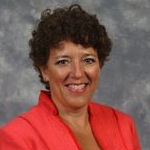The practice of Medicine is changing. All physicians are facing the stresses of caring for an underinsured and aging population with higher health care needs in an era of decreasing reimbursement. Legislators are instituting reform initiatives in an attempt to help cut costs and decrease utilization of expensive acute services, while still maintaining the highest quality of care for our population.
Emergency Department (ED) doctors are at the forefront of the new demands and we cannot fulfill them alone. With the new measures regulating door to admission times, hospital lengths of stay, thirty day re-admission rates and overall patient satisfaction, hospitalists and ED doctors will need to better communicate and innovate.
What can ED doctors do now to assist in the long term success of medicine and healthcare reform? One helpful concept that is returning and driving change is the Medical Home, defined as a “model where a traditional doctor’s office is transformed into the central point for Americans to organize and coordinate their health care based on need and priorities.” As these needs and priorities evolve into the issues we face in the Acute Care Continuum, so too is the Medical Home.
At Orange Coast Memorial Medical Center, under the leadership of Dr. Robert Realmuto (Medical Director of the ED and Chief of Staff), IPA physicians, Foundation physicians and contracted doctors are coming to the table to discuss the concepts of the Medical Home and what responsibility each player has to make the system function. As part of this initiative they have established a Joint Operations Committee which is currently in the experimental phase. The priority of this committee is to collect metrics and to learn the requirements of each individual specialty, so that specialists can help each other function at the highest level. This includes agreeing on standardized order sets, understanding admission criteria, and evaluating best practices that decrease hospital length of stay without jeopardizing quality care.
Additional activities that originated from the meetings focus on researching the resources in the community to help a patient’s transition from the inpatient setting to a safe home environment. Initiating relationships with Home Health Care agencies, Hospice, SNFs, and specialty clinics creates the groundwork necessary to prevent non-essential admissions to the hospital, reduce disease recurrence, and guard against deterioration in the patient’s health.
The committee members have concluded that even though short term goals may differ among services, our long term goals are the same. By working together we can create a win-win situation. With the hospitalists focusing on rapid admission, ED throughput is enhanced. With the ED physicians completing appropriate work ups and writing holding orders, hospital length of stay decreases. By creating a shared practice with focus on proficient treatment and effective communication, all parties benefit, and most importantly our patients benefit too.
Bundled payments and correlation of reimbursement to hospital quality measures are pushing us in several directions. All hospital based doctors will need to define the value they are bringing to the overall patient experience. Medical staff will need to work together to be efficient and effective as the patient traverses the Acute Care Continuum. We will have to bypass expensive hospitalizations and find other avenues to provide care at the level of service required. Orange Coast Memorial is taking steps in this direction by working to come together and refine communications and streamline processes. They are setting an example for the future by taking a proactive role that may someday be the standard for all hospitals in the nation.






















